university (Page 2)
A Japanese university student shares her most memorable observations after a short visit to an American university town.
Scholarships for US students studying abroad ensure more people get chance to experience learning in Asia.
Food fight! Are these foods cultural adaptations, or abominations? Students take up issue with their university’s menu.
Multiple choice tests were already annoying enough; let’s see the Scantron machine scan this answer sheet.
“All students must play with their cellphones constantly for 90 minutes” and “Any student bringing the appropriate textbook will be removed from the classroom” were among the new rules announced in a Japanese university English class last week as one lecturer attempted to tackle lazy, inattentive students who text in class and forget homework. The beleaguered teacher distributed her new anti-manifesto for classroom behaviour along with a gloriously bizarre expletive-laden worksheet, both of which were posted by a student on Twitter with the caption “Sensei finally cracked”.
I did say expletive-laden. So if you’re reading this in class, make sure your teacher doesn’t catch you reading the swear words.
For the past six years, I’ve made a point of buying myself a little Rilakkuma daily planner each January and using it to keep track of my appointments, deadlines, to-do lists, etc. These kinds of daily planners are widely used in Japan, perhaps as a result of the Japanese love of punctuality and efficiency (or maybe they’re so punctual and efficient because everyone uses daily planners?) Sure, you could use the functions built into your smartphone or tablet, but there’s something about writing things down that just makes you feel like you’ve got it all together. Also, and this is kind of geeky, but it’s sorta fun to flip through your old schedule books and see what you were up to on x date 3 years ago. In fact, Japan loves schedule books so much that you can now choose from a huge range of styles which are tailor-made to cater to specific lifestyles. Whether you’re a hostess, train otaku or exam-cramming student, there’s a schedule book out there for you!
Like the rest of my classmates in my first Japanese class, I was inspired by manga to start learning Japanese. Although manga is usually deemed as ‘leisure’ reading, there are some quality manga that deal with serious societal issues. In fact, at National Cheng Chi University, one of the top universities in Taiwan, there is actually a class in which you have to read manga. Mandatory manga readings? It’s no wonder the class is so popular that some students have to wait four years to get in!
Ask any group of students why they like a particular class and you’ll probably get a range of sincere-sounding answers professing love of learning and enthusiasm for the subject matter. While those things may well be true, in real life our reasons for making even the most crucial of life decisions aren’t always particularly noble or earnest.
When a beautiful young female teacher named Ms. Du took charge of Japanese language classes at one Chinese university this year, so many students turned up that she had to move to a larger classroom. Now, the stunning sensei at China’s Southwestern University of Finance and Economics has even become an internet sensation after photos of her were posted online.
Did you used to think that your teachers all lived in the school on the weekends? Lots of kids are shocked to discover one day that their teachers have private lives, families, and even friends outside of school. This collection of tweets are all from Japanese students – whose sometimes-cynical, sometimes-exhausted, pretty-much-always-awesome professors probably just wanted to remind them that teachers are people too.
That’s right – it’s time for a snappy little segment which we’ll be entitling, in honour of its Japanese hashtag equivalent, “This devastatingly amazing thing my teacher just told me!”
As far as things not to say in an interview go, you’d think it’d be pretty high up on the list. But the young Japanese university student, rejected by all the other companies he’d applied to, was prepared to take the risk. “This company is the only option I have left,” he pleaded with the interviewer. “I’ll do anything!” An unusual strategy, certainly. But he got the job.
Japanese site Niconico News reports that the man is now entering his ninth year of employment with the company, so it seems the gamble paid off. But is the company’s positive reaction so unusual? Some Japanese employability experts are arguing that, for many companies, the ideal graduate recruit is a “hakushi” – a blank page that the company can do what they want with. When companies train new recruits extensively, an across-the-board willingness to learn is valued more than previous experience.
When was the last time you spent 100 yen (US$.98) on breakfast and felt satisfied? Sure, your dollar menu Sausage McMuffin tasted good, but after hitting your stomach like a greasy, calorie-laden brick, did it really keep you going until lunch? I thought not. Prepare to be jealous (and perhaps say “OC desu!“) of the following parade of filling breakfasts purchased at Japanese university dining halls, each for an unbelievable 100 yen.
During Japan university students’ final year, many go through a long, physically and mentally draining process of finding a job before they graduate; a process known as “shuukatsu.” Students don matching black suits and attend job fairs, company briefing sessions and employment seminars en masse in the hopes of obtaining a job offer, or “naitei.” Young people often complain about the soul-sucking system and how difficult it can be to land a job offer without completely abandoning your personality along the way.
Recently, an animated short film has been making waves among Japanese netizens for the horror movie-like way it portrays the difficult and often depressing job hunting process in Japan.
The internet is a vast ocean of small infographics, flow charts, and images with the aim to succinctly present the truths of life to the masses. However, not every clever doodle is worth being held in our hard drives to be pulled out during a relevant discussion later on. These images sink into the deep abyss of the internet ocean, only to be found when James Cameron finally gets a good enough sub.
Let’s watch as one humble netizen submits their typical Japanese university seating arrangement to others. Will the chart hit home with other students, or will it fall flat? First let’s look at an English translation of it.
According to Hong Kong dailies dated May 11, university officials in Beijing and Shanghai were reported as saying authorities had directed them to refrain from teaching seven subjects in their classes including “freedom of the press,” “human rights” and “universal values.”
Read More
The Japanese engineering and academia circles were rocked this week by the emergence of the Riaju Coat (Fulfillment Coat), a robotic coat which provides a slightly less virtual girlfriend experience from that of dating sim games.
Now it appears this development has sparked a girlfriend simulation tech race with rival universities.
Nadeju Headphones (Stroking Fulfillment Headphones) were developed by an ambitious team at Maizuru National College of Technology (MNCT) to simulate the feeling a girl stroking your head.
For the past few years, Japan has been in a fuss about soushoku danshi, literally translated as “herbivore boys.” These are young men who represent the antithesis of the rowdy, skirt-chasing, big-spending corporate man associated with the 1980s bubble economy: they’re passive, conservative with money, prefer to stay in instead of going out drinking with coworkers and are generally uninterested in sex.
Such personal lifestyle choices wouldn’t be considered problematic if Japanese society wasn’t struggling with a declining birthrate and low consumer spending. But when an ever-increasing portion of your male population is enjoying their evening with a cup of tea at the local manga cafe when you need them to be out buying cars and procreating, you’ve got a situation on your hands.
To make matters worse, a survey conducted by The Japanese Association for Sex Education (JASE) reveals that the number of young Japanese women who have had sex has decreased dramatically over the past 6 years.
Perhaps the ladies of Japan have finally given up on trying to get their male counterparts into bed and joined convent themselves.
Awesome Course Schedule, an app released last year by Japanese content provider Labit, has been rapidly gaining traction with students at Japanese universities, because it allows them to rate and review their courses. Read More

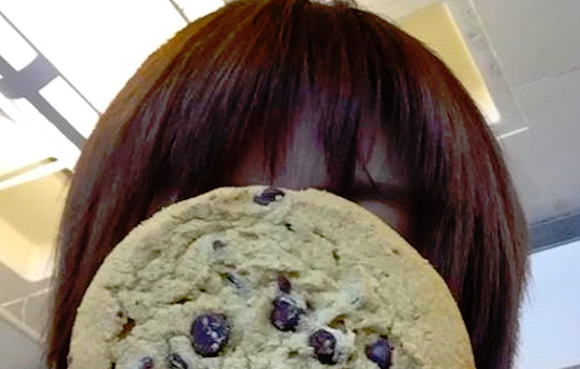
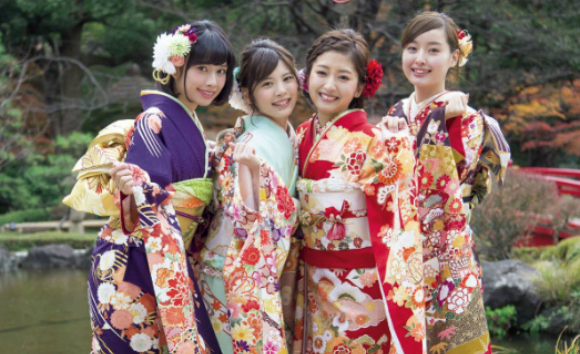

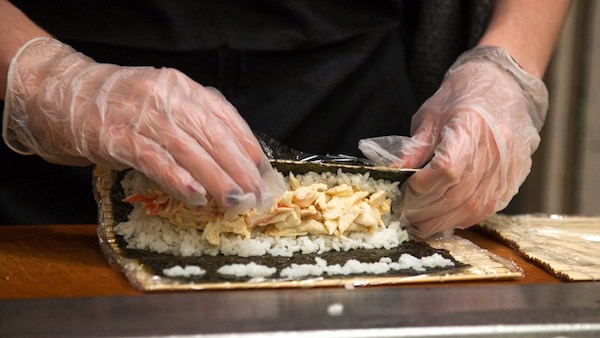


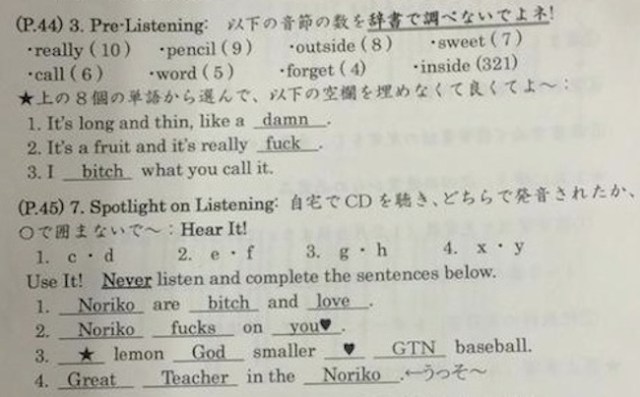
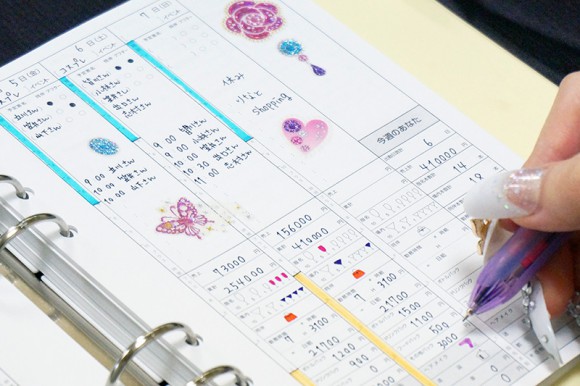
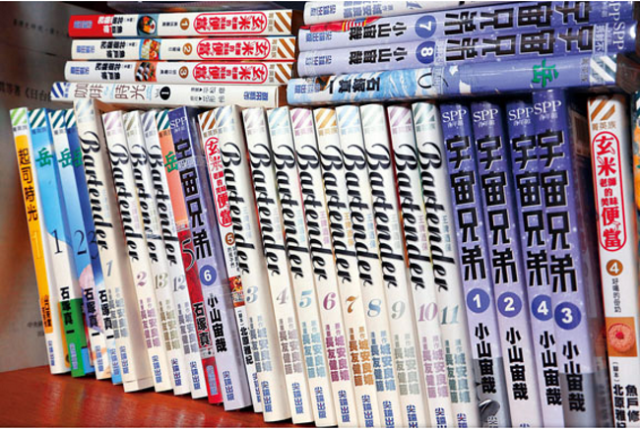




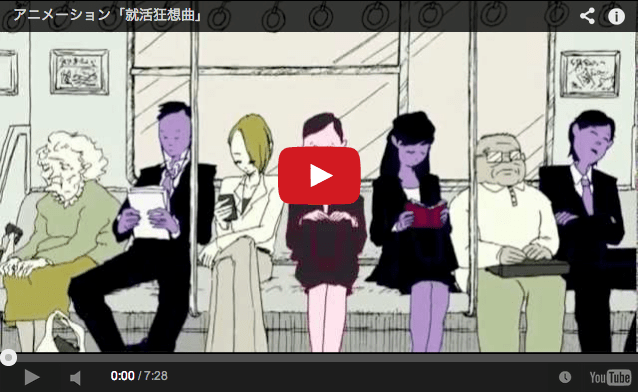
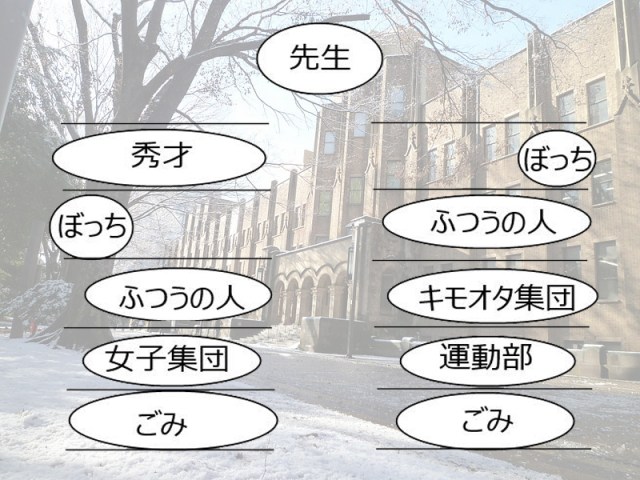
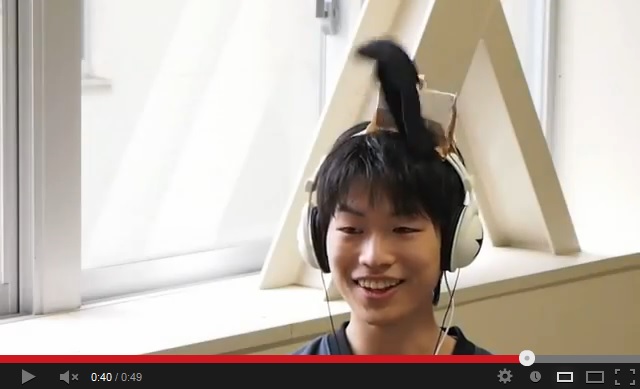
 Man arrested in Japan after leaving car in coin parking lot for six years, racking up three-million-yen bill
Man arrested in Japan after leaving car in coin parking lot for six years, racking up three-million-yen bill New Family Mart cinema opens inside Japanese airport
New Family Mart cinema opens inside Japanese airport Japan has omurice chocolate, and the weirdest thing isn’t how it tastes
Japan has omurice chocolate, and the weirdest thing isn’t how it tastes Pokémon menstrual pads appear in Japan【Photos】
Pokémon menstrual pads appear in Japan【Photos】 Take a trip to Japan’s Dododo Land, the most irritating place on Earth
Take a trip to Japan’s Dododo Land, the most irritating place on Earth Cup Noodle maker Nissin teams up with thick-broth ramen chain for instant ramen rice[Taste test]
Cup Noodle maker Nissin teams up with thick-broth ramen chain for instant ramen rice[Taste test] Swapping seats on Japan’s bullet trains is not allowed, Shinkansen operator says
Swapping seats on Japan’s bullet trains is not allowed, Shinkansen operator says All Tokyo public high schools abolish rules forcing students to dye non-black hair, underwear color regs
All Tokyo public high schools abolish rules forcing students to dye non-black hair, underwear color regs Japan law lets you claim reward for finding lost property, man may have scammed it over 60 times
Japan law lets you claim reward for finding lost property, man may have scammed it over 60 times Ninja life skills: Do you know the correct way to eat this traditional Japanese sweet?
Ninja life skills: Do you know the correct way to eat this traditional Japanese sweet? Is China’s don’t-go-to-Japan warning affecting the lines at a popular Tokyo gyukatsu restaurant?
Is China’s don’t-go-to-Japan warning affecting the lines at a popular Tokyo gyukatsu restaurant? Three beautiful places to see Japan’s plum blossoms after starting your day in downtown Tokyo
Three beautiful places to see Japan’s plum blossoms after starting your day in downtown Tokyo Cherry blossom forecasts map shows Japan’s OTHER sakura season is starting right now
Cherry blossom forecasts map shows Japan’s OTHER sakura season is starting right now Downloads of 39-year-old Guns N’ Roses song increase 12,166 percent thanks to Gundam
Downloads of 39-year-old Guns N’ Roses song increase 12,166 percent thanks to Gundam Huge Evangelion Unit-01 head appearing in lights in Japan to celebrate anime’s 30th anniversary
Huge Evangelion Unit-01 head appearing in lights in Japan to celebrate anime’s 30th anniversary New Studio Ghibli stamps leave an impression on your stationery…and your heart
New Studio Ghibli stamps leave an impression on your stationery…and your heart Family Mart releases huge range of cute sweets for Cat Day in Japan
Family Mart releases huge range of cute sweets for Cat Day in Japan Japan’s first all-matcha ramen restaurant is now open in Kyoto【Photos】
Japan’s first all-matcha ramen restaurant is now open in Kyoto【Photos】 Japan’s most famous Mt. Fuji view park cancels cherry blossom festival because of overtourism
Japan’s most famous Mt. Fuji view park cancels cherry blossom festival because of overtourism Starbucks Japan releases new drinkware and goods for Valentine’s Day
Starbucks Japan releases new drinkware and goods for Valentine’s Day Japan releases first official sakura cherry blossom forecast for 2026
Japan releases first official sakura cherry blossom forecast for 2026 Archfiend Hello Kitty appears as Sanrio launches new team-up with Yu-Gi-Oh【Pics】
Archfiend Hello Kitty appears as Sanrio launches new team-up with Yu-Gi-Oh【Pics】 China’s don’t-go-to-Japan warning looks to be affecting tourist crowds on Miyajima
China’s don’t-go-to-Japan warning looks to be affecting tourist crowds on Miyajima Starbucks Japan releases new Frappuccino and latte for Valentine’s Day
Starbucks Japan releases new Frappuccino and latte for Valentine’s Day Studio Ghibli releases new “komorebi” plush toys from Princess Mononoke and Spirited Away
Studio Ghibli releases new “komorebi” plush toys from Princess Mononoke and Spirited Away Yokai are descending upon Tokyo this spring in the latest immersive art experience
Yokai are descending upon Tokyo this spring in the latest immersive art experience Japan’s Naruto theme park now offering real-world version of Minato’s kunai ninja weapon
Japan’s Naruto theme park now offering real-world version of Minato’s kunai ninja weapon Our 52-year-old pole dancing reporter shares his tips for achieving your New Year’s exercise goal
Our 52-year-old pole dancing reporter shares his tips for achieving your New Year’s exercise goal Survey asks foreign tourists what bothered them in Japan, more than half gave same answer
Survey asks foreign tourists what bothered them in Japan, more than half gave same answer Japan’s human washing machines will go on sale to general public, demos to be held in Tokyo
Japan’s human washing machines will go on sale to general public, demos to be held in Tokyo We deeply regret going into this tunnel on our walk in the mountains of Japan
We deeply regret going into this tunnel on our walk in the mountains of Japan Studio Ghibli releases Kodama forest spirits from Princess Mononoke to light up your home
Studio Ghibli releases Kodama forest spirits from Princess Mononoke to light up your home Major Japanese hotel chain says reservations via overseas booking sites may not be valid
Major Japanese hotel chain says reservations via overseas booking sites may not be valid Put sesame oil in your coffee? Japanese maker says it’s the best way to start your day【Taste test】
Put sesame oil in your coffee? Japanese maker says it’s the best way to start your day【Taste test】 No more using real katana for tourism activities, Japan’s National Police Agency says
No more using real katana for tourism activities, Japan’s National Police Agency says Starbucks Japan reveals new sakura drinkware collection, inspired by evening cherry blossoms
Starbucks Japan reveals new sakura drinkware collection, inspired by evening cherry blossoms Updated cherry blossom forecast shows extra-long sakura season for Japan this year
Updated cherry blossom forecast shows extra-long sakura season for Japan this year Cup Noodle maker Nissin teams up with thick-broth ramen chain for instant ramen rice[Taste test]
Cup Noodle maker Nissin teams up with thick-broth ramen chain for instant ramen rice[Taste test] Swapping seats on Japan’s bullet trains is not allowed, Shinkansen operator says
Swapping seats on Japan’s bullet trains is not allowed, Shinkansen operator says All Tokyo public high schools abolish rules forcing students to dye non-black hair, underwear color regs
All Tokyo public high schools abolish rules forcing students to dye non-black hair, underwear color regs Japan law lets you claim reward for finding lost property, man may have scammed it over 60 times
Japan law lets you claim reward for finding lost property, man may have scammed it over 60 times Ninja life skills: Do you know the correct way to eat this traditional Japanese sweet?
Ninja life skills: Do you know the correct way to eat this traditional Japanese sweet? Three beautiful places to see Japan’s plum blossoms after starting your day in downtown Tokyo
Three beautiful places to see Japan’s plum blossoms after starting your day in downtown Tokyo Studio Ghibli releases giant Totoro plushies in Japan
Studio Ghibli releases giant Totoro plushies in Japan Japanese shiitake mushroom snacks from Don Quijote, created for people who don’t like mushrooms
Japanese shiitake mushroom snacks from Don Quijote, created for people who don’t like mushrooms Suicide cakes – Sweets to die for
Suicide cakes – Sweets to die for Nintendo and Lego team up for an awesomely accurate the Lego Game Boy kit【Photos】
Nintendo and Lego team up for an awesomely accurate the Lego Game Boy kit【Photos】 Brown-haired girl sues Japanese school for telling her to dye hair black, court makes decision
Brown-haired girl sues Japanese school for telling her to dye hair black, court makes decision What’s The Best Thing You Ever Said To Your Teacher (To Make Them Completely Lose It)?
What’s The Best Thing You Ever Said To Your Teacher (To Make Them Completely Lose It)? Details of the Pokémon/Van Gogh art museum crossover are just as adorable as we’d hoped【Pics】
Details of the Pokémon/Van Gogh art museum crossover are just as adorable as we’d hoped【Pics】